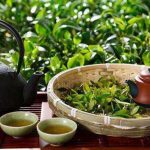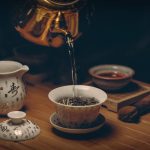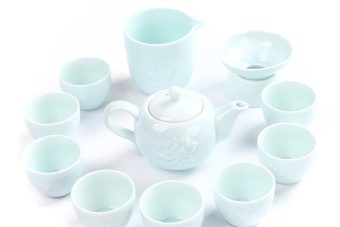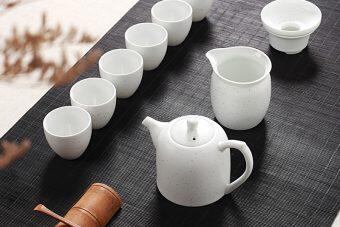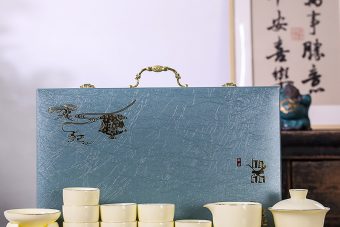Tea is an ancient healer with a long and fascinating history. From the man in…

by vinux
- July 4, 2019
- 4,452
- 4
“Harmony” is the soul of the Chinese tea ceremony and the philosophical core of the Chinese tea ceremony. In fact, the harmony of tea ceremony is the concrete embodiment of the miscellaneous thoughts of Buddhism, Taoism and Confucianism in China. We should know that the idea of “harmony” is not unique to Confucianism. Confucianism, Buddhism and Taoism all put forward the idea of “harmony”, but there are still differences among them. Confucianism attaches great importance to the harmony of etiquette and righteousness. Taoism advocates pure natural harmony and opposes artificial norms. Buddhism esteems “harmony” in the religious form that transcends the emptiness of subject and object in the present world. Confucian “harmony” embodies the beauty of neutrality; Taoist “harmony” embodies invisible and unconventional natural beauty; Buddhist “harmony” embodies the beauty of norms.
“Treat guests with tea” is a Chinese custom. It is a great respect for the guests to bring a cup of fragrant tea when guests come; even if the guests do not come, they can also express the friendship between relatives and friends by sending tea. It is recorded in Reminiscences of the Eastern Capitalin Song Dynasty that Kaifeng people attach importance to the friendship, and they will come to rescue the one who was bullied once they see it. Sometimes there are some new foreigners living in the Eastern Capital, or sometimes there are Capital native moving to new houses, Neighbors will come to offer tea soup, or invite them to have tea at home, which is called “Tea Support”.
In modern life, to entertain guests with tea, make friends with tea, express deep affection through tea, not only has penetrated into every household, but also used for government office, groups, and even become national etiquette. Tea is a symbol of courtesy and friendship, a reflection of affinity and harmony, whether it is the “Tea Support” of the Eastern Capital neighborhood in Song Dynasty, or the tea reception and tea party of people nowadays.
“Quietness” is the soul of the Chinese tea ceremony, “harmony” is called harmony because of “quietness”. Without “quietness” atmosphere and realm, and “harmony” is only an incomplete soul. The Chinese tea ceremony is a way to cultivate one’s morality. Quietness is the only way to practice the Chinese tea ceremony.
When you realize the word “quietness”, you can see through everything, think like the wind and clouds, and be always happy in your heart. Taoism advocates quietness, Confucianism advocates quietness and Buddhism advocates quietness as well. From ancient times to the present, whether it is a feather scholar, a monk or a Confucian scholar, all regard “quietness” as the only way to practice tea ceremony. Because quietness is clearness, quietness is emptiness. Be quietness, you can have a mind as open as a valley — very modest; be quietness, you can be insightful and understand Tao in every possible way. It can be said that “there is no other magic way to reach the end of the tea ceremony and to reach the end of the mysterious realm, except for being quietness.”
Chinese tea ceremony creates a tranquil atmosphere and empty mind through tea affairs. When the fragrance of tea soaks into your heart, your mind will appear empty in the tranquility, and your spirit will sublimate in the tranquility. You will blend with nature in the tranquility, and reach the “heavenly happiness” realm of “the union between heaven and man”.
“Pleasantness” is the pleasantness of “quietness” and “harmony”, because “pleasantness” is the beating of the soul, the pulse, the instantaneous insight into life and the feeling of mood, the slightest touch and a tremor in the elegant life.
The Chinese tea ceremony is a way to appreciate both elegance and vulgarity. It is reflected in everyday life. It does not pay attention to form and style. People of different places, different beliefs and different cultural levels have different pursuits of the tea ceremony. Historically, the princes and nobles emphasized the “preciousness of the tea” in tea ceremony, aiming to show off their power, wealth and elegance. The Bachelor of letters emphasized the “charm of tea” in tea ceremony, aiming to cherish things and stimulate the thread of ideas in writing. The Buddhist emphasized “the virtue of tea”, aiming to eliminate the tiredness and meditating and enlightening the Tao. The Taoism teas, focusing on the “merit of tea”, aiming at the health preservation by tea tasting, feathering into immortals. Ordinary people preach tea ceremony, focusing on the “flavor of tea”, aiming at quenching thirst, eliminating fishiness and greasy, and enjoying life.
Anyone can get a comfortable and pleasant feeling in the tea event. Confucian scholars can please the mood and enjoy the character, feather scholars can please the mood and preserve the health, and monks can be happy and self-satisfied. This kind of “pleasure” of Chinese tea ceremony makes it have a very broad mass base. This “pleasure” is also one of the fundamental signs that Chinese tea ceremony is different from Japanese tea ceremony which emphasizes “silence”.
“Trueness” is the ultimate pursuit of Chinese tea ceremony.
Chinese people do not say “Tao” easily. Once they discuss Tao, they will persist in “Tao” and pursue the “trueness” of Tao. “Trueness” is the starting point and the ultimate pursuit of Chinese tea ceremony. “Trueness” is not all true in the choice of true or false, but the truth of life, goodness and beauty. “Trueness” is enlightenment, thoroughness, calmness, silence and the universe… Chinese tea ceremony pays attention to the “trueness” when engaged in tea affairs, which includes not only that tea should be real tea, true fragrance and true taste; the environment should be real mountains and rivers; the authentic works of celebrities should be suspended; the best utensils should be real bamboo, real wood, real pottery and real porcelain; but also that people should be sincere, guests should be sincere, words should be sincere, and mood should be really leisurely. Every link of tea activities should be conscientious, and every link should be true. To love life, cherish life, make your body and mind healthy and comfortable, make your life real, and achieve “every day is a good day”, which is the highest realm pursued by Chinese tea ceremony.
